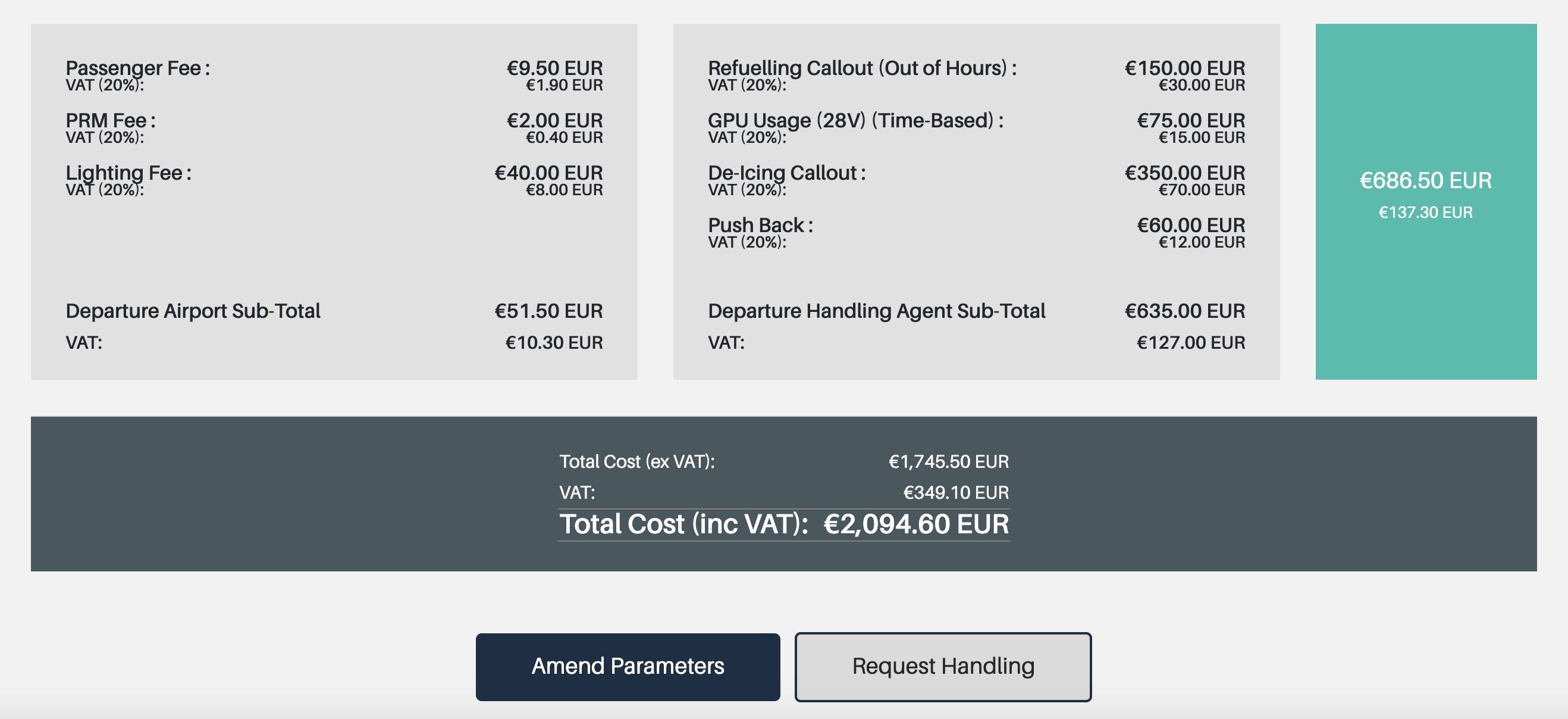Adrian Parsons is founder and managing director of startup Aviation Data Solutions, which last month launched two products, the Airport Pricing Calculator and Handling Pricing Manager.
The Airport Pricing Calculator (APC) is the first publicly available combined airport and handling cost calculation system. It aims to enable operators to instantly calculate the cost of any aircraft in its fleet to visit any airport on any itinerary with any combination of services.
The Handling Pricing Manager (HPM), a free tool for handlers including FBOs to host and control access to their pricing data for use in the APC platform. The HPM, which has multi-layered security measures and is GDPR-compliant, is intended to reduce the manual processing of enquiries, and increases brand awareness.
Both the APC and HPM took three years to develop and beta testing was conducted with a select group of operators and handling agents in the UK and Europe.
In this Q&A Parsons, who is also a pilot and flies an Eclipse 500 explains how the pricing calculator and manager works and the benefits he thinks everyone in the business aviation sector could gain by signing up.
Why did you launch Aviation Data Solutions?
While I was working for Luxaviation in their broker team we were getting up to a thousand quote requests a day, primarily via Avinode, that we would respond to. But the one thing missing was airport and handling charge data. Sometimes this led to incorrect assumptions being made in quotes for flights that eventually cost the company.
I thought surely there must be a solution out there for this. There wasn’t, so I went about building my own system. Three years later, here we are.
How does the system work?
There are two components, the Airport Pricing Calculator (APC) and the Handling Pricing Manager (HPM).
The APC is straightforward but very powerful. The idea is simply that it calculates the cost of any aircraft visiting any airport and using any handling agent
There is a web-based portal for business aviation operators to undertake calculations. For larger operators, we can integrate directly with their operations and charter sales software,
We’ve developed a separate tool, the Handling Pricing Manager for handling agents, which is completely free, the purpose of which is to enable handling agents to securely host and control access to their pricing data, receive handling requests from the APC platform and market the presence of their handling stations.
The APC currently covers more than 700 airports and over 350 handling agent stations and combines 1087 methods of charging with over 240 services at these locations. Airport charges are worked out using metrics such as time splits, noise margins and levels, NOx emissions, weight bands, seat capacity, passengers on board, wingspan, floorspace. These are combined by the calculator with charges for ground handling services, hospitality services, line maintenance services in any metric.
The system outputs a quote as you would expect to see it on the invoice the handling agent issues. We can price anything – if we aren’t covering it right now, we can model it quickly.

Where does the data the APC uses come from and how do you ensure it is accurate?
It comes from what handlers submit to the HPM and from open access sources. We have five people in our data processing team and a custom-built automated change monitoring system.
The data goes through four stages of checks by different people when it is imported and before it is used. We also regularly audit the data.
How does the APC handle quotes and what is the handler’s involvement?
Crucially, a handling agent does not get notified every time a quote is requested. They grant access to an operator once and then the operator can run as many calculations as they like, which can then be converted to handling requests. There are security measures in place to stop operators from abusing the system.
Instead of dealing with lots of requests for quotes via phone and email, the APC platform takes care of this so that all the handler does is receive handling booking requests via HPM. This can significantly improve the efficiency of their workflow, which is especially important right now with so many staff on furlough.
The handling agent can make changes to the handling request and override the price. This could be technical amendments or discounts that may or may not be part of a contract pricing structure.
In the APC platform, operators pre-upload documents about their aircraft and organization which are made available for handlers to download before either confirming or declining the handling.
The next phase under development is to integrate HPM into existing handling operations software, so that once a booking is confirmed it can be pushed automatically across, producing further efficiency gains.
How does the APC account for differences in aircraft when it automatically calculates a quote?
We spent six months building out an aircraft database that I believe is one of the most comprehensive out there. It contains the data for every business aviation type, not just the airframe dimensions, but also each variant: different engines, different propellers, different modifications, different max takeoff weights, different noise levels and all of the emissions, power output data for every business aviation engine type. It’s a powerful tool that prevents mischarging.
How have the larger FBO networks treated this?
There has been a variety of responses. It hasn’t necessarily the big brands that have been reluctant, but some of the small ones. Some said yes straight away, others have taken some convincing, but most have been receptive to the concept once they have had a chance to understand the benefits HPM can bring to their operation.
We want everyone on board and what we have found is that once one handler comes on board at a location, the rest follow.
Does the APC really cover every airport in the world?
We’re striving to cover every airport capable of accommodating bizav traffic with at least one handling agent. In North America there isn’t really as much benefit because they don’t pay out on fees, they pay on the fuel. In Europe, where everything is so disparate, it is much more useful.
We currently have pretty good coverage across Europe and are starting to expand our coverage East into Russia and South into Africa. We are also cherry picking a few major business aviation hubs further afield to cover in the short term and we are getting a lot of interest from operators in the USA, because they find it difficult to work in Europe.
What is the cost of the Airport Pricing Calculator?
There is a monthly subscription for the APC, with a basic package and a European package that covers all of the airports within Europe. We are also working on an ‘Unlimited’ package with all airports in the dataset, however we want to pad out our airport coverage a little more before offering this.
What is the main benefit for operators?
One calculation done through APC, that could otherwise be incorrectly quoted, might cost an operator hundreds or even thousands of pounds. Avoiding that incorrect quote just once could pay for the APC subscription for a year or even more.
Also, for smaller operators with less in the way of resources, APC enables you get a highly accurate quote that is difficult to achieve otherwise.
The other real benefit is you can audit more easily by looking at pricing retrospectively to find inaccuracies in invoices. You could uncover relatively small amounts, but they all add up. You could save a huge amount of money.
What is the main benefit for handlers?
Being on the HPM increases visibility, especially at congested airports. If you’re not on the system and your competitor is, you could lose business. There are also benefits in terms of efficiency. Using the system can reduce the amount of time spent on dealing with quotes by up to 60%.
For operators, it shows who is at an airport when you are going somewhere. Small brands can often be hidden away so it helps to level the playing field.
How do you see Aviation Data Solutions growing?
APC is an extremely useful tool that makes things easier and saves money on misquoted flights. We want to add four to five operators a month and we already have 10 operators who want integration into their existing software.
I also want APC and HPM to facilitate growth of the wider business aviation sector. Data for airport and handling charges is the missing piece of the puzzle for automating charter quotes; we can now facilitate the bridging of the business aviation and premium travel markets through integration global distribution systems.
This could enable situations where for example a group of eight travellers could input their itinerary into a flight search engine like Skyscanner and have a suitable business aircraft show up in the results for charter – that’s what I’d like Aviation Data Solutions to enable.





